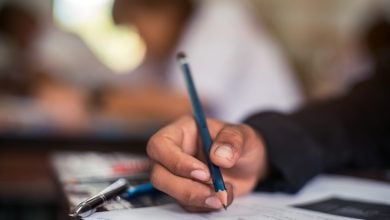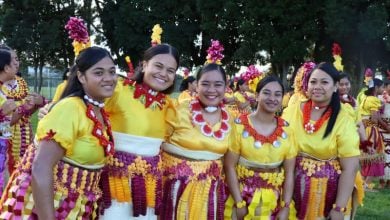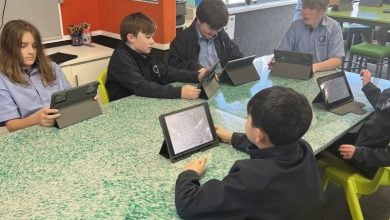
We are increasingly focused on the development of the global competency skills that will equip today’s learners to seize opportunities and play a role in facing down humanity’s big problems.
The latest print issue of School News magazine is available for free here.
We are re-framing established concepts such as metacognition and cultural intelligence in the new context of global competency skills to encourage learners to analyse their own perceptions of society and culture and where they belong and can contribute. At the centre of it all is creativity; in thinking, problem solving, communicating, and collaborating.
Part of the curriculum I teach is unique in secondary education around the world – Cambridge International’s Global Perspectives subject, in which many learners in Aotearoa New Zealand have proved themselves adept.
Our own Hannah McIlhone achieved the Top in New Zealand prize for Cambridge IGCSE Global Perspectives in 2021. Having had the privilege of seeing dozens of learners engaging with this curriculum, four key lessons have become apparent.
- We need to create 360º learners.
Cambridge Global Perspectives is not a single subject, per se – it is a skills-based curriculum which spans learning areas. It focuses on enquiry into and reflection on key global issues from different perspectives – personal, local, national, and global – so they see problems from a multidimensional perspective and can come at solutions with the same expansive lens.
The curriculum has individual components as well as cooperation and collaboration, and some of the group projects my students have worked on include conflict and peace, where they designed a simulation roleplay game; water, food, and agriculture, which looked at cultural differences in staple foods and how to work with food banks to assist local families of different backgrounds which are experiencing food insecurity; and health and disease, where learners analysed exam pressure in different cultures and found a connection between mental health and yoga. They were inspired to run yoga sessions to support fellow learners.
All these examples show a 360º approach to an issue and involve taking action, which in turn fuels a sense of accomplishment that filters out beyond the classroom. One current student approached a senior school leader for permission to run a mufti day to raise money for a Southland organisation that supports families. At first she didn’t think her perspective mattered, but she has been empowered to lead and influence change. This scenario is common: students go beyond what they thought their limit was, because curiosity and creativity drive their skill progression.
- Creativity is a core competency.
An idea expressed by others is that creativity should have as much focus as literacy in a school, and I wholeheartedly agree. Creativity supports students to go beyond the obvious and extend their thinking, building from others’ perspectives to think about challenges in a different way.
Curiosity and a love of learning are at the heart of creativity, and we encourage learners to pose questions to one another and apply past knowledge to new situations. What goes with this, in a classroom setting, is a growth mindset – it is important to foster an environment of growth thinking and trust so you eliminate any fear a student has of being wrong and therefore being afraid to speak up, ask a question, or pose an idea.
By fostering critical thinking we lead students into looking at cause and effect. This is where creative thinking comes in, because they have to come up with their courses of action and what might work in addressing a problem. They consider the strengths of an idea, risks of the idea, groups that might be for and against it. Research skills come into it, where students have to evaluate the sources they’ve used and which were most effective.
- Metacognition is a new skill for life.
One of the key points of Cambridge Global Perspectives is metacognition, which refers to students’ awareness of how they have deepened and strengthened their ability to learn. Metacognition is critical in all subjects and used across learning areas; it is about how students reflect on and evaluate their own learning, how they have engaged with others, how their thinking has evolved. This offers students a 360º view of themselves as a learner as well as other people’s points of view and feedback from teachers.
We deal with topics such as biodiversity, trade and aid, and belief systems and family structures – these are big ideas that demand conceptual thinking and have no one ‘right’ answer but opens their minds to the complexity of the world and of human thought, empathy, and experience.
The curriculum has three components – an individual report, a group project, and an exam. Because it addresses sustainability and globalisation, I have always linked the United Nations’ Sustainable Development Goals into what we do, so students have a concept of a shared voice and a framework with other learners across cultures and countries, with different views and perspectives. It allows them to see how their learning is contributing to those goals and fuels a sense of purpose.
- Formal training in global thinking can create the next generation of leaders.
As a community raising future adults, we need to focus on developing critical and creative thinkers who understand themselves as global citizens and have the skills to make a difference. Many of my students have developed leadership capacity and confidence through Cambridge Global Perspectives; they learned their voice is valuable.
One student became a Youth Member of Parliament; she took her knowledge of the UN Sustainable Development Goals and spoke in Parliament about the New Zealand curriculum becoming more closely aligned to the goals. Outside the Cambridge Global Perspectives curriculum we are seeing leaders emerge; a current international student in Year 11 is a peer maths tutor, and international students have become prefects.
As a teacher I love it when you see that a student is ready to take their place in the world and is proud of who they are as a person. I know we’re going to see former students around the country bringing a truly global perspective and empathy to others in whichever fields they choose.






